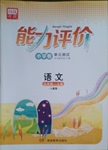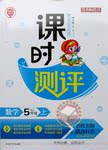题目内容
Everyone knows that there’s not enough land in Hong Kong.If you go there by air, you will land at Kai Tak Airport. It was built out into the sea. It is in the part of Hong Kong called Kowloon. Kowloon is one of the two big islands in Hong Kong.
The other island is Hong Kong itself. You can get there by ship or through a tunnel(隧道) under the sea.
The population of Hong Kong is more than six million. Chinese and English are spoken by many people there. Clothes, computers, radios, televisions are made in Hong Kong. It is a shopping center. You can buy all kinds of things there.
Hong Kong is also a beautiful city. It’s a good place for traveling. People from all over the world visit Hong Kong every year. You can watch dog-racing and motor-racing there. When you are hot and tired, you may rest in the small cool gardens. There are also a lot of tall buildings with comfortable rooms to live in. If you enjoy eating out, you can easily find a good place for delicious food.Foods of different flavors(风味) are served in Hong Kong.
【小题1】Where was Kai Tak Airport built?
| A.It was built out into the sea. | B.It was built out into the lake. |
| C.It was built out into the river | D.It was built out into the pool. |
| A.Nearly 6 million. | B.Less than 6 million. |
| C.Over 6 million. | D.Only 6 million. |
| A.7. | B.6. | C.5. | D.4. |
| A.Kai Tak Airport is in Kowloon. |
| B.There's a lot of land in Hong Kong. |
| C.Many people in Hong Kong speak Chinese and English |
| D.Hong Kong is a beautiful city for traveling |
| A.Hong Kong is a big city with a large population |
| B.there are almost no factories in Hong Kong |
| C.few people visit Hong Kong ever year |
| D.visitors can enjoy the comfortable living rooms and delicious foods in Hong Kong |
【小题1】A
【小题2】C
【小题3】D
【小题4】B
【小题5】A解析:
本文主要介绍的是香港的发展历史
【小题1】根据文章内容“It was built out into the sea.”可知答案为A
【小题2】根据文章的内容“The population of Hong Kong is more than six million.”可知答案为C
【小题3】根据文章内容“Clothes, computers, radios, televisions are made in Hong Kong”可知答案为D
【小题4】根据文章的内容可推断答案为B
【小题5】根据文章内容内容,可知答案为A

 能力评价系列答案
能力评价系列答案 唐印文化课时测评系列答案
唐印文化课时测评系列答案
|
Happiness is for everyone. In fact, happiness is always around you if you care about it. When you are in 1 at school, your classmates will help you; when you study hard at your 2 , your parents are always taking good 3 of you; when you get succeed(成功), your friends will say congratulations 4 you; when you do something 5 , people around you will help you correct it; and when you do something good to 6 , you will feel happy, too. All these things are 7 . If you pay attention to them, you can see happiness is always 8 you. Happiness is not the same as money. When you are poor, you can say you are very happy, because people can’t buy happiness 9 money. When you meet problems, you can also say loudly you are very happy, because you have many friends to help you. So you can’t always say you are poor and you have bad luck. If you agree with me, you can be a happy and 10 person.
|
broadcast1/'brɔ:dkɑ:st||ˈbrɔdˌkæst/n[C] a programme on the radio or on television: a radio news broadcast | live broadcast ( = a programme that you see or hear at the same time as the events are happening) broadcast2 v past tense and past participle, broadcast 1 [ I,T] to send out radio or television programmes: The interview was broadcast live across Europe. 2 [T] to tell something to a lot of people: There was no need to broadcast the fact that he lost his job. broadcaster /ˈbrɔːdkɑːstə || ˈbrɔːdkæstər/ n [C] |
curious/ ˈkjʊəriəs || 'kjur-/ adj 1 wanting to know about something: When I mentioned her name everyone was curious. | [ +about] I’m incurious about this book she's supposed to be writing. |curious to see/hear/know etc: Mandy was curious to hear what Peter had to say himself.—opposite INCURIOUS 2 strange or unusual: a curious noise coming from the cellar | curious that It's very curious that she left without saying goodbye. curl1 /kɜ:l|| kɚrl/ n 1[C] a small mass of hair |
|
flask / flɑ:sk || flæsk/n [C] I BrE a special type of bottle that you use to keep liquids either hot or cold, for example when travelling 2 a flat bottle usually used to carry alcohol 3 a glass bottle with a narrow top, used in a LABORATORY flat1/ flæt / adj flatter, flattest 1▶ SURFACE◀ smooth and level, without raised or hollow areas, and not sloping or curving: a flat-bottomed boat |a perfectly flat sandy beach | flat as a |
pollute / pə'lu:t/ v [T] 1 to make air, water, soil etc dangerously dirty and not suitable for people to use: beaches polluted by raw sewage | industrial emissions that pollute the air 2 pollute sb’s mind to give someone immoral thoughts and spoil their character: fears that Lawrence's novels would pollute young minds--polluted adj: polluted rivers--polluter n [C] pollution / pəˈlu:ʃn /n [U] 1 the process of making |
1.The pronunciation of the word "broadcast" is ____ or/ˈbrɔdˌkæst /.
A. /'brɔ:dkɑ:st/ B. /'brəud'sɑ:st/ C. /bræd'kɔst/ D. /'bru:dkɑ:st/
2.The word"____ "can be used as an adjective (形容词).
A. pollute B. pollution C. curious D. curiously
3.Which of the following is a flask?




A. B. C. D.
4. The word "pollute" means "______".
A. to tell something to a lot of people B. wanting to know about something
C. a programme on the radio or on TV D. to make air. water, soil, etc dirty
5.These texts are probably from ______.
A. a magazine B. a dictionary
C. a newspaper D. an advertisement